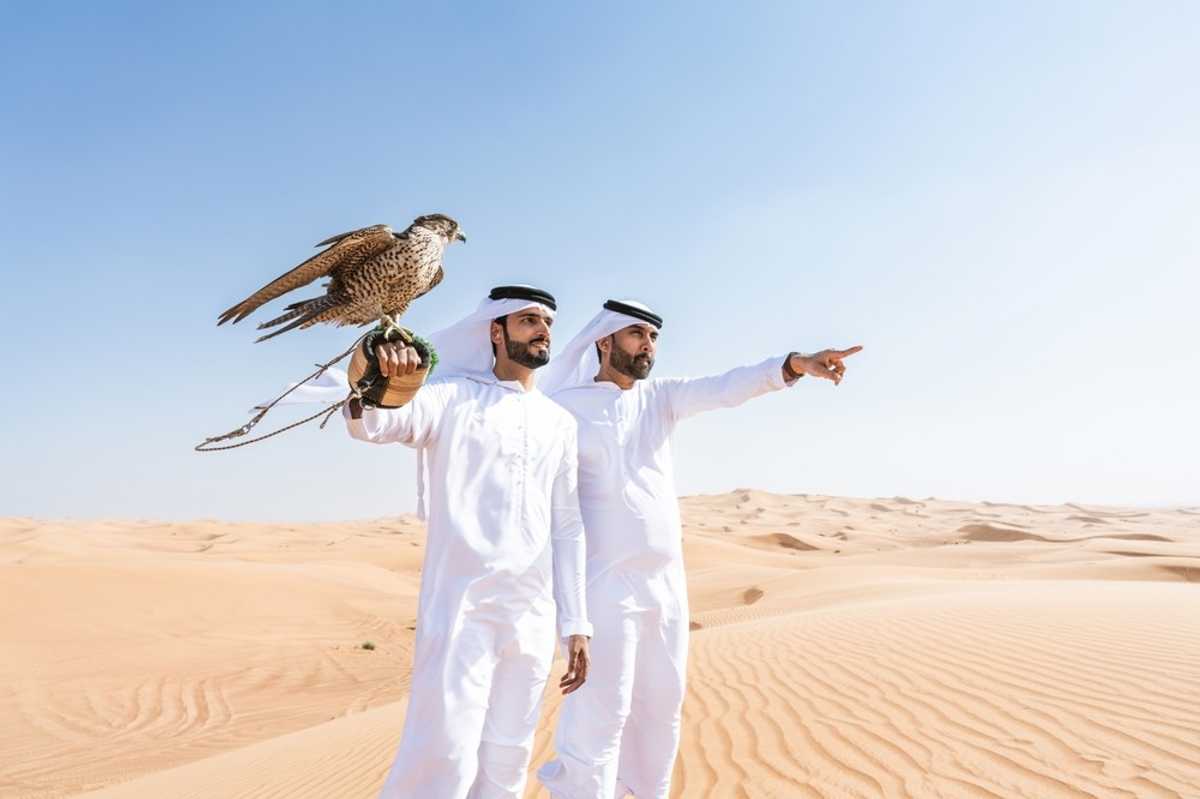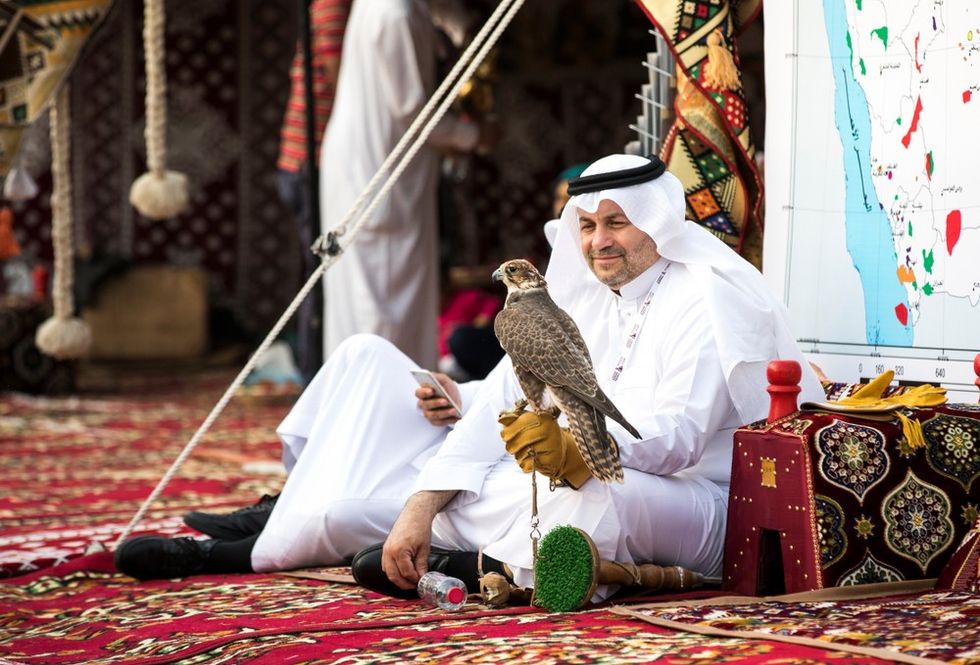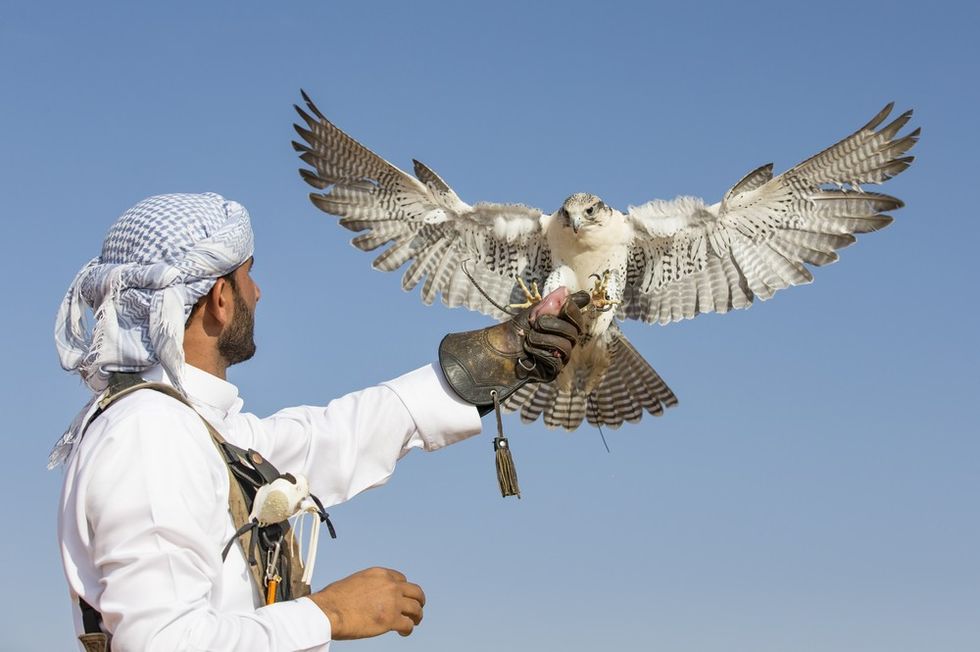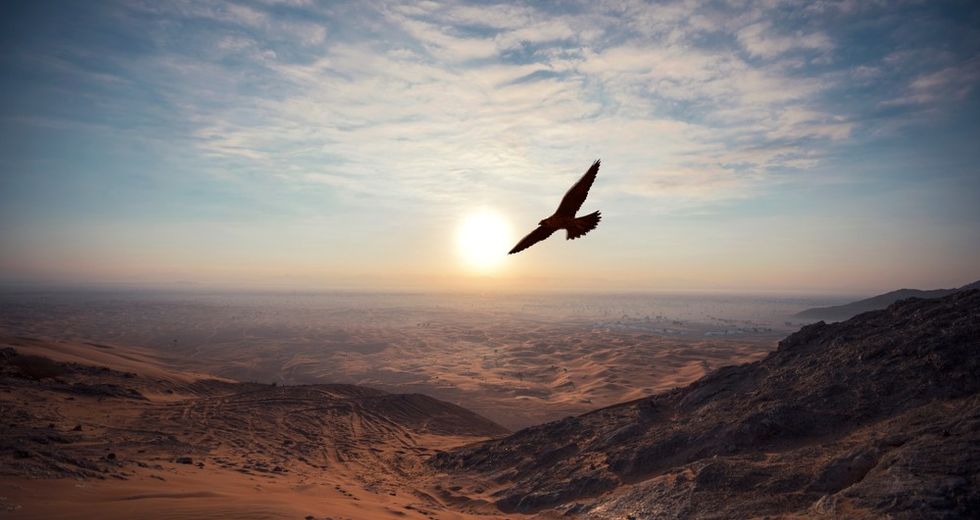Falconry in the UAE: A time-honored tradition
Falconry in the UAE continues to symbolize national pride and cultural heritage.

Ahad Alfadhli
Senior Producer
Ahad Alfadhli is a senior producer at Nukta with more than ten years of experience across television, social media, and digital platforms. Her work spans daily news and original features, with a focus on creating sharp, compelling stories that resonate with today’s audiences.

The ancient sport of falconry remains a vital aspect of Emirati culture and identity
Shutterstock
With Abu Dhabi’s falconry season officially kicking off on October 20, the UAE prepares to celebrate a tradition that has spanned millennia. This year, licensed falconers will once again take to the desert skies, hunting captive-bred Houbara bustards until January 20, continuing a legacy that has shaped the region for over 4,000 years.
Falconry, known locally as Al Saqara, is more than just a sport in the UAE — it's a living connection to the country’s Bedouin roots. Born out of necessity in the harsh, resource-scarce deserts of the Arabian Peninsula, falconry was originally a vital means of survival. Falcons, once wild hunters, were tamed and trained by the Bedouins to help feed their families during the cold winter months.
Today, this ancient art remains a powerful symbol of courage, honor, and community, embodying traditional Arab values that continue to resonate in modern UAE society.
"Falconry allows our children to enjoy the spell of the desert, instilling in them virtues of patience, fortitude, and companionship," says Sheikh Hamdan bin Zayed Al Nahyan, Chairman of the Emirates Falconers’ Club. These values, he notes, are just as vital today as they were generations ago.
A season of celebration and heritage
Falconry is woven deeply into the cultural fabric of the UAE, celebrated in poetry, music, and storytelling. It takes center stage during national festivals and heritage events, where the unique bond between falconers and their birds is proudly showcased.

In 2016, this ancient art was recognized by UNESCO as part of the Intangible Cultural Heritage of Humanity, solidifying its importance not only in the UAE but globally.
This year's falconry season will adhere to strict legal and environmental guidelines to promote sustainability. Falconers must maintain a 2-kilometer distance from roads, residential areas, and protected lands. Licensing is available through the TAMM platform, with hunters required to be UAE citizens over 18, and their falcons registered with the Ministry of Climate Change and Environment (MOCCAE).
The art of training Falcons
Training a falcon is no easy feat — it demands patience, skill, and an intimate understanding of the bird’s instincts. Falconers spend months forging a bond with their birds, teaching them to chase feathered decoys and, eventually, live prey like pigeons. This bond is built on mutual trust and communication, creating a unique language between falcon and handler.

Falconry also involves a host of specialized tools. From the leather hoods that keep the birds calm when they're not hunting to the tall wooden perches that dot the sand, every piece of equipment is carefully chosen. Today, modern technology meets tradition with GPS beacons attached to falcons’ legs, ensuring these valuable birds — some worth over AED 73,500 (US$ 20,000) — can be tracked and protected.
National bird and icon of the UAE
The regal birds of prey are much more than skilled hunters — they are symbols of freedom, strength, and resilience. Their importance is deeply woven into the fabric of Emirati identity.
The falcon is featured prominently as the emblem of the UAE and is found on the national flag, currency, government logos, and other significant symbols throughout the country.

The UAE's dedication to these majestic birds is further reflected in its pioneering efforts to protect and honor them. The UAE was the first country to issue passports for falcons, facilitating their travel across borders for competitions and conservation. It also became the first to establish a dedicated hospital for their care.
Desert tours offer tourists the chance to experience the majesty of falcons up close. You can even hold one in your hands and pose for photos against the breathtaking desert backdrop — a unique way to connect with the UAE’s rich falconry traditions and cultural heritage.
Abu Dhabi’s falconry season is not just about sport; it’s a celebration of tradition, skill, and the deep bond between humans and nature. Whether seen as a status symbol or a way to honor the past, falconry continues to capture the hearts and imaginations of all who participate in its ancient rituals.
As this year’s season unfolds, the tradition of falconry once again takes flight, honoring the UAE’s past while soaring into its future.







Comments
See what people are discussing